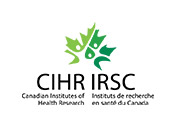Rationale: Lung cancer is the most commonly diagnosed cancer in Canada and is responsible for a quarter of all cancer-related deaths in the country. Screening for lung cancer with low dose CT can facilitate the detection of early-stage lung cancers that are amenable to treatment thereby reducing mortality related to lung cancer. Individuals are considered eligible for lung cancer screening if they meet specific high-risk criteria, such as age and smoking history. Population groups that are at highest risk of lung cancer, and therefore, the target of lung cancer screening interventions, are also the least likely to participate in lung cancer screening. This can lead to a widening of health inequities. Deliberate effort is needed to both reduce lung cancer risk (through upstream interventions that promote smoking cessation) as well as midstream interventions that promote equitable access to lung cancer screening.
Approach: This project is an Equity-Informed Patient-Oriented Research (EI-POR) study funded by the Canadian Institutes of Health Research (CIHR) Strategy for Patient-Oriented Research (SPOR). In this study, an interdisciplinary group of stakeholders including policy-makers, healthcare providers and patients (defined as individuals with relevant lived/living experience) are partnering to improve equity in access to lung cancer screening. Using a patient-partnered approach, members of the research team are co-designing a learning module for healthcare providers to will promote the delivery of equitable primary care and consequent access to lung cancer screening for structurally underserved populations. The module will educate healthcare providers on how life experiences shape smoking behaviour and lung cancer risk; and will also impart key skills on how to deliver care which is timely, appropriate and safe. Once the module is ready it will be freely available to all healthcare providers to support the fair and just delivery of lung cancer screening in the province of Ontario and elsewhere.



